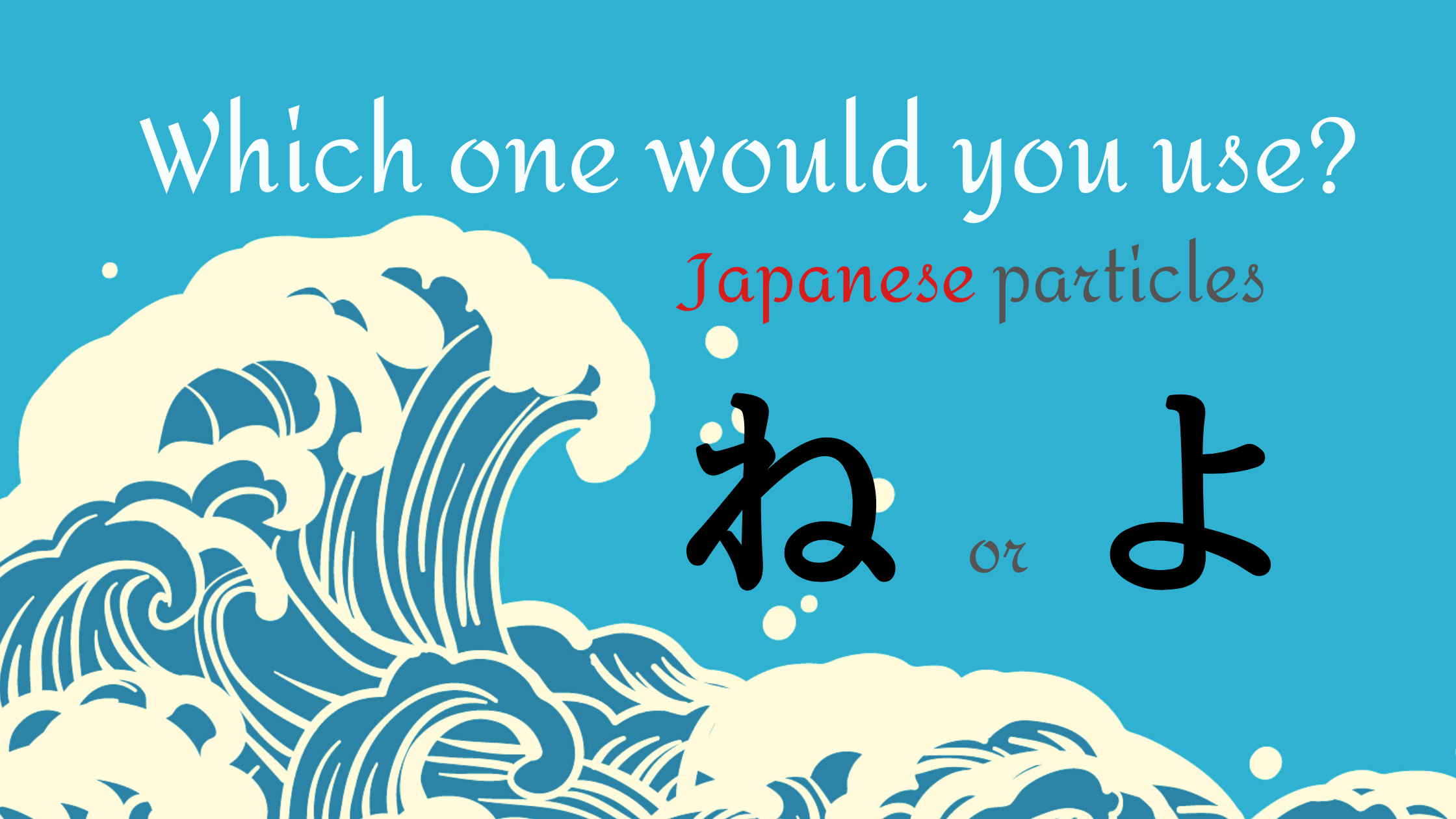When you listen to Japanese people speaking, you may notice that you can hear « ne » or « yo » at the end of almost every sentence!
If you want to speak Japanese naturally, like a native, you can't afford not to master these two particles.
Today, let's learn the difference between NE and YO, and practice with a quiz!
Particle ね (ne)
ね (ne) is added to the end of a sentence when it is assumed that the person you are talking to already knows what you are telling them, and they probably agree with you. It can be translated as: right? isn't it? huh?
きょうはあついですね! Kyō wa atsui desu ne!
It's hot today, huh?
かんじはむずかしいですね... Kanji wa muzukashii desu ne...
Kanji is difficult, huh...
Particle よ (yo)
よ (yo) is also added at the end of the sentence when:
- It is assumed that the person you are talking to doesn't know the information being given to them. You are informing or advising the other person of something.
- You want to assert your opinion.
The nuance of よ (yo) is similar to « you know » or « I tell you » in English.
そとはあついですよ。Soto wa atsui desu yo.
It's hot outside, you know.
かんじはむずかしいですよ。 Kanji wa muzukashii desu yo.
You know, Kanji is difficult.
Now, let's practice with a quiz!
Out of ね (ne) and よ (yo)、which would you use for following sentences ?
When you are letting a person know that it's raining outside.
そとはあめです( )。Soto wa ame desu ( ).
When you say to your friend that Christmas is almost here.
もうすぐクリスマスです( )。Mōsugu kurisumasu desu ( ).
When you want to say « that sounds good »or « good idea! »
いいです( )。 ii desu ( ).
When you are giving permission for something, or to someone. Or when you accept something.
いいです( )。ii desu ( ).
When you want to assert that something is odd.
おかしいです( )! Okashii desu ( )!
Let's check your answers!
When you tell a person that it's raining outside.
そとはあめです(よ)。 Soto wa ame desu ( yo ).
→ Because the person doesn't yet know that it's raining outside.
When you say to your friend that Christmas is almost here.
もうすぐクリスマスです(ね)。 Mōsugu kurisumasu desu ( ne ).
→ Because everybody knows when it's almost Christmas.
When you want to say « that sounds good » or« good idea! »
いいです(ね)。 ii desu ( ne ).
→ Because you are expressing agreement with another person's proposal.
When you are giving permission for something, or to someone. Or when you accept something.
いいです(よ)。 ii desu ( yo ).
→ Because you are asserting your decision.
When you want to assert that something is odd.
おかしいです(よ)! Okashii desu ( yo )!
→ Because you are asserting your opinion.
Were your answers correct?
Try these words out with your Japanese friends (if you happen to have them!) and see if you've gotten the hang of it!
しぜんなにほんごになりますよ! Shizen na nihongo ni nari-masu yo!
(Your Japanese will sound more natural, you know!)




コメント